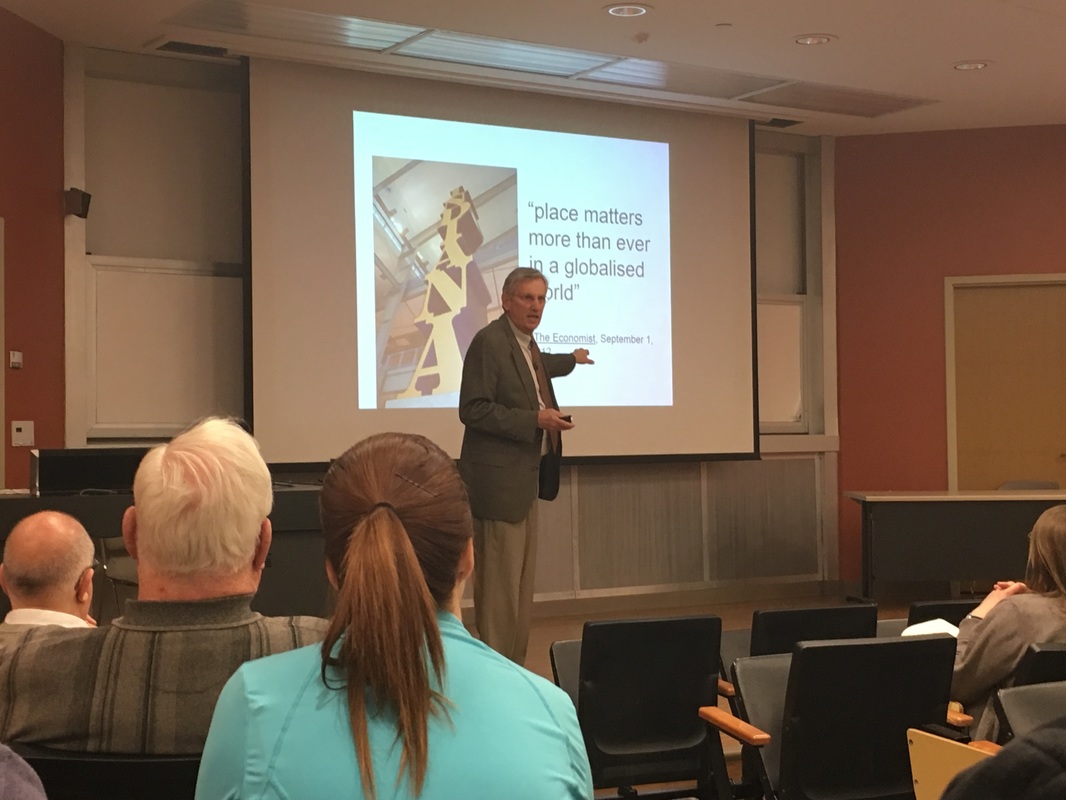Beth Dalton, a professor for both the English Department and Honors College, presented an excerpt from a piece titled “Invisible Woman” from her short story collection Women Walking Alone. The collection is one of two, along with a novel, that Dalton completed as part of her Master’s of Fine Arts residency program for creative writing at Spalding University in Louisville, KY.
“Invisible Woman” tells the tale of a woman who has just turned 50 struggling to feel as though she belongs, or is even seen, at a business conference. As she goes through her day, Clara, the main character, has an elevator door closed in her faced, a tray of breakfast food dumped on her, and is snubbed by one of the speakers she attempts to introduce herself to. All are experiences that Dalton pulled from her real life, albeit, she admits, slightly embellished.
“[A colleague] once said the me that once you reach a certain age, if you’re a woman, you disappear. I’ve found that to be very true,” Dalton said.
Beyond Clara’s unfortunate encounters, though, it seemed to be the countless people who looked past her instead of at her that ultimately broke her. It was certainly the aspect of Clara’s story that struck a chord with me. While not everyone knows the invisibility of age, I think everyone can relate to feeling alone in a crowded a room (especially those of us who had an angsty punk rock stage in the eighth grade).
Personally, as someone who has consistently struggled with my weight since 6-years-old, I can definitively say that there is a stark difference between being looked at and being noticed. To combat never being the thinnest person in a room, I always forced myself to be the smartest or the funniest or have the cutest shoes. But when people know you as “the funny girl,” that’s usually all they know about you. The part of me I forced them to notice to distract from the parts I didn’t want them to notice was all they cared to learn about. Maybe I am funny and smart, and maybe I am overweight, but good or bad none of those things are all that I am. Similarly, Clara could be the oldest person in the room, she could be the best at her craft, she could dress in bright colors and, sure, that could get her noticed, but none of those aspects of Clara are Clara - no one noticed her.
That is, in part, why Dalton’s lecture was so compelling. A room full of people all came to listen to a woman who had previously felt invisible. To really, truly, fully learn about her journey. They came to notice.
Editor's’ note: next month’s lecture will be about a project exploring the history of the Edmund F. and Virginia B. Ball Honors House, presented by Dr. Bruce Geelhoed.


 RSS Feed
RSS Feed
